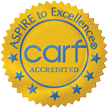The New Year is a time for reflection and renewal—a perfect opportunity to set meaningful goals that support your recovery journey. Setting goals can be transformative for individuals in addiction recovery, providing structure and motivation. However, recovery isn’t about perfection; it’s about progress. Setting realistic recovery goals allows you to make steady, sustainable strides forward without feeling overwhelmed.
This blog explores actionable strategies for setting goals in addiction recovery, highlights the importance of incremental progress, and provides examples of attainable goals tailored for the New Year.

The Importance of Goal-Setting in Addiction Recovery
Goal-setting is a cornerstone of personal growth, and in recovery, it takes on an even greater significance. Goals serve as a roadmap, helping you stay focused as you rebuild your life. Achieving even small milestones fosters confidence and reinforces your ability to create meaningful change.
However, the process can feel daunting, especially if goals are too broad or unrealistic. For example, setting a goal like “I’ll never relapse again” may create unnecessary pressure and lead to discouragement if challenges arise. Instead, focus on realistic goals for addiction recovery, such as attending weekly therapy sessions or practicing mindfulness daily. These goals are specific, manageable, and directly aligned with your recovery journey.
Embracing a mindset of progress over perfection is essential. Recovery is not a linear process—there will be setbacks, but each is an opportunity to learn and grow. You build resilience and maintain momentum by focusing on consistent improvement rather than unattainable perfection.
Principles for Setting Realistic Recovery Goals
To set meaningful and achievable goals, it helps to follow the SMART framework:
- Specific: Clearly define what you want to achieve. For example, rather than saying, “I want to be healthier,” set a goal like, “I will walk for 20 minutes three times a week.”
- Measurable: Include ways to track your progress. For example, if your goal is to meditate daily, you can track the duration or frequency to stay consistent.
- Achievable: Be realistic about your current abilities and resources. Too ambitious goals can lead to frustration, while achievable goals encourage steady progress.
- Relevant: Focus on goals directly supporting your long-term recovery, such as attending support groups or practicing stress management techniques.
- Time-Bound: Assign deadlines to your goals to create a sense of urgency and purpose. For example, “I will reconnect with a family member by the end of March.”
Another essential principle is breaking larger goals into smaller, actionable steps. If your ultimate goal is to repair relationships with loved ones, start with smaller objectives like sending a thoughtful text or scheduling a coffee chat. These small actions build momentum toward the bigger picture.
Flexibility is equally important. Life is unpredictable, and your goals may need to adapt to changing circumstances. If a goal feels overwhelming, scale it down or adjust your timeline rather than abandoning it entirely. This approach ensures your goals remain supportive rather than a source of stress.
Strategies to Stay Committed to Recovery Goals
Setting smart goals is just the beginning. Staying committed requires intentional effort and consistent strategies. Here are some tips to help you stay on track:
1. Track Your Progress
Tracking your progress makes your efforts feel more tangible and rewarding. Use a journal, app, or calendar to document achievements, whether attending therapy sessions, practicing mindfulness, or completing a fitness goal.
Celebrating small wins is equally essential. Acknowledge every step forward, whether treating yourself to a favorite activity or sharing your progress with a trusted friend. These moments of celebration boost motivation and reinforce your commitment.
2. Build Accountability
Sharing your goals with a trusted person can help you stay accountable. This might be a sponsor, therapist, or supportive friend. Regular check-ins encourage and help you stay focused.
Recovery groups, like those we offer at Cedar Recovery, are also invaluable. Connecting with others who understand your journey fosters a sense of community and shared purpose, making it easier to stay committed.
3. Embrace Flexibility
If circumstances change, don’t hesitate to adjust your goals. For instance, if your goal to reconnect with a loved one feels emotionally challenging, start smaller by writing a letter or sharing a meaningful text message. Flexibility ensures your goals remain realistic and manageable.
4. Practice Self-Compassion
Recovery is not about being perfect; it’s about progress. Setbacks are a natural part of the recovery process and should be treated as opportunities to learn and grow. Practicing self-compassion means being kind to yourself and focusing on your progress rather than dwelling on mistakes.
Examples of Recovery Goals for the New Year
Setting clear goals across different areas of life can create balance and promote holistic recovery. Below are examples to inspire your New Year’s resolutions:
Physical Goals
- Commit to a consistent exercise routine, such as yoga, walking, or swimming three times a week.
- Improve sleep habits by creating a bedtime routine and aiming for 7–8 hours of sleep.
- Schedule a check-up with your doctor to address any lingering health concerns.
Emotional Goals
- Attend individual therapy sessions regularly to work through emotional challenges.
- Practice mindfulness or meditation daily to reduce stress and improve focus.
- Start a gratitude journal and list three things you’re grateful for each day.
Social Goals
- Reconnect with a family member or friend by scheduling a coffee date or phone call.
- Join a recovery group to build supportive connections with others in similar situations.
- Volunteer for a cause you care about to foster purpose and social engagement.
Professional/Educational Goals
- Enroll in a workshop or course to develop new skills or explore career opportunities.
- Update your resume and apply for jobs that align with your strengths.
- If you’re pursuing education, set a study goal, such as completing a lesson or chapter weekly.
Spiritual Goals
- Dedicate time to spiritual practices like prayer, reflection, or exploring nature.
- Attend workshops or read books that inspire personal and spiritual growth.
- Practice kindness by performing small acts of service for others.
By creating goals in these areas, you can address multiple aspects of recovery and work toward a balanced, fulfilling life.

Seeking Support to Achieve Recovery Goals
A strong support system is crucial for achieving your goals. Here’s how to build and utilize it:
1. Build a Support Network
Surround yourself with people who encourage your recovery journey. This could include trusted friends, family members, or peers in recovery. Joining a support group, such as our recovery community at Cedar Recovery, provides a safe space to share experiences and gain motivation.
2. Use Professional Resources
Professional guidance is invaluable in recovery. Cedar Recovery offers outpatient programs, telehealth services, intensive care options and mobile clinics in Tennessee andVirginia, ensuring you have the tools to succeed.
3. Celebrate Milestones Together
Involve your support system in celebrating your progress, whether a small win like completing a weekly goal or a major milestone like reaching a year of sobriety.
4. Plan for Setbacks
Having a plan in place for challenges ensures you can recover quickly. This might include contacting a friend, attending an extra therapy session, or revisiting your goals with a counselor.
Recovery is About Growth
As you embrace the New Year, remember that recovery is a journey of progress, not perfection. Setting realistic goals, staying committed, and leaning on your support system create a foundation for lasting success.
Every small step forward is worth celebrating. Whether improving your physical health, building emotional resilience, developing coping strategies or reconnecting with loved ones, each goal brings you closer to a life of fulfillment.
Focus on progress over perfection, and take pride in every effort you make. This New Year, commit to yourself, your goals, and the journey ahead—because recovery is about growth, one step at a time.
Cedar Recovery is here to support you in achieving your goals. Contact us today to take the first step toward a brighter future.




